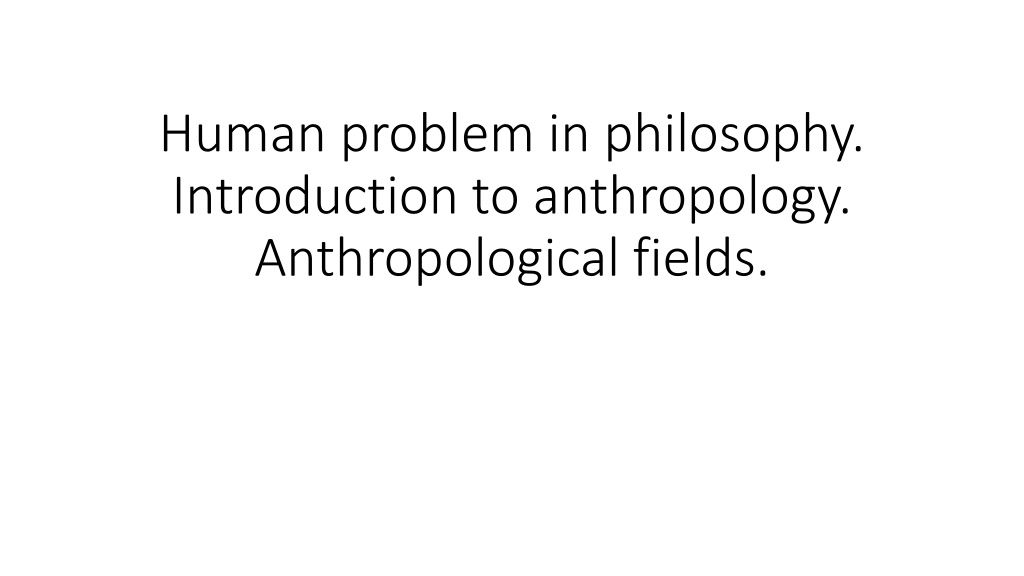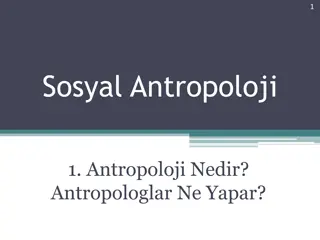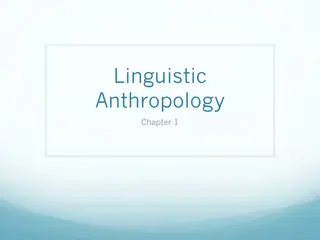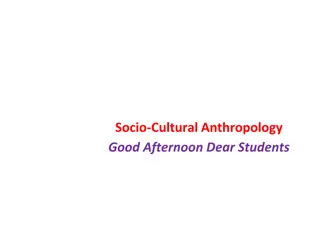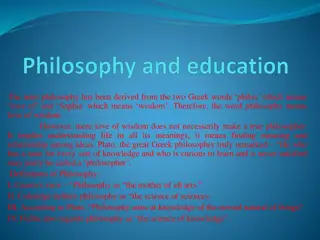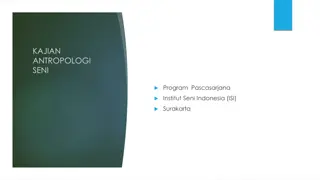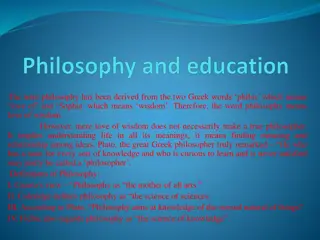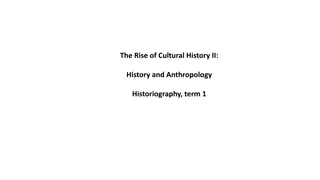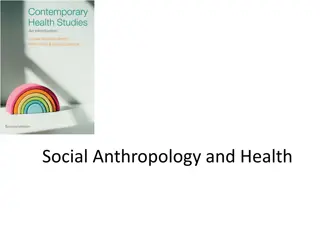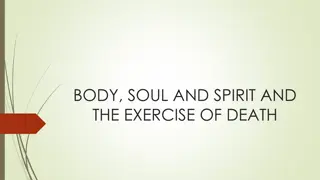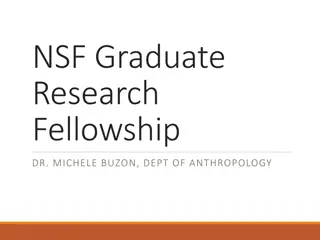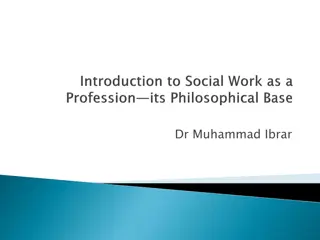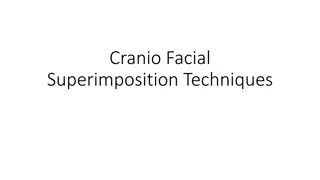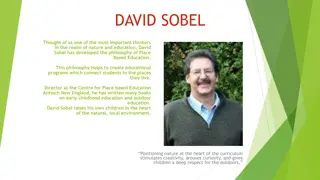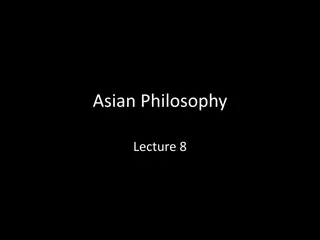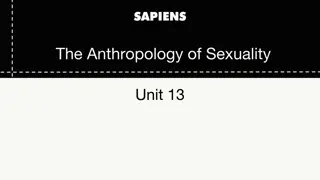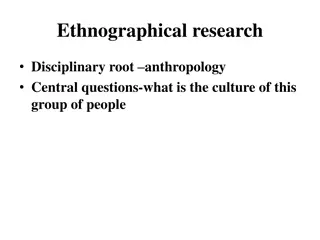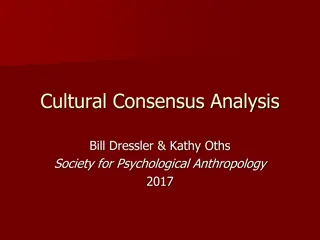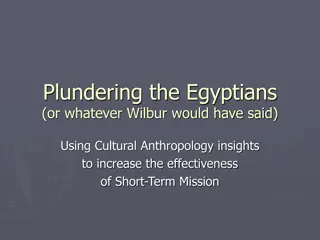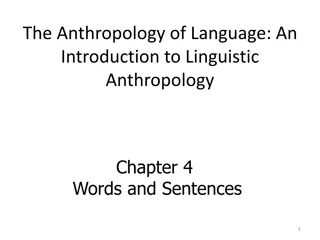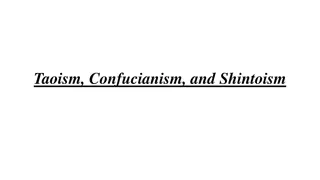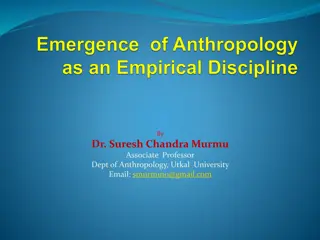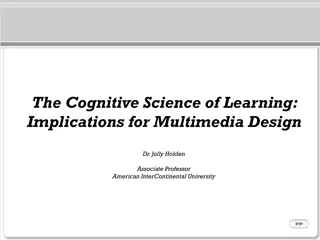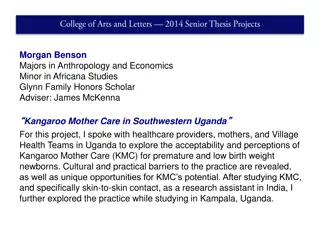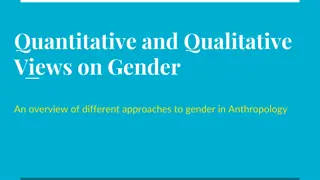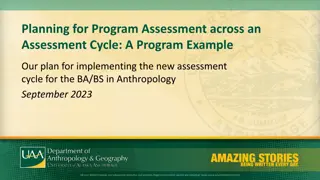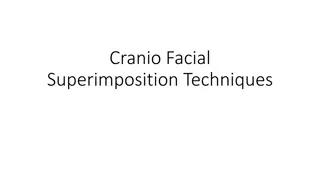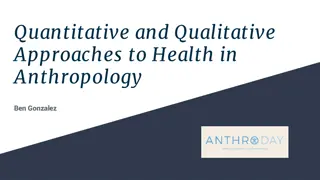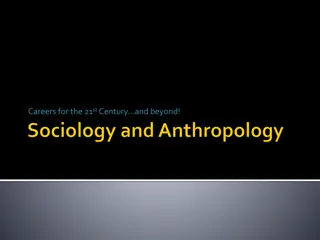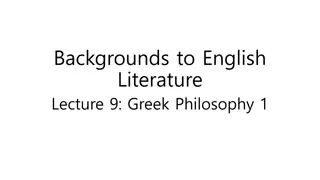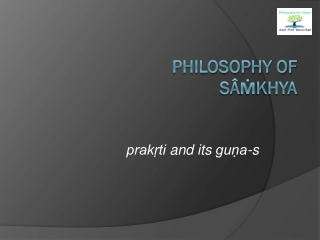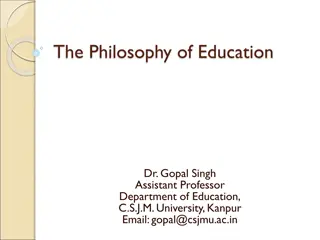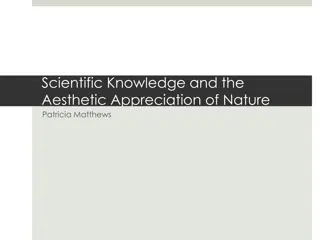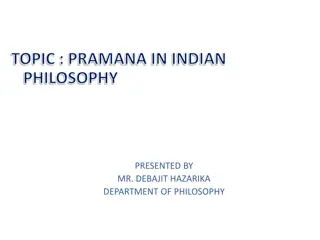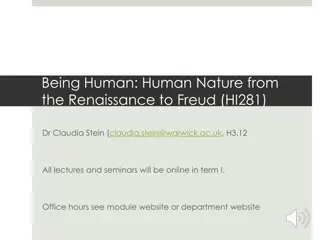Understanding Human Nature Through Philosophy and Anthropology
Explore the different perspectives on human nature through philosophy and anthropology, from ancient Greek philosophers like Aristotle to modern thinkers like Freud and Sartre. Delve into the intersections of theology, psychology, and cultural relativism in shaping our understanding of what it means to be human.
Download Presentation

Please find below an Image/Link to download the presentation.
The content on the website is provided AS IS for your information and personal use only. It may not be sold, licensed, or shared on other websites without obtaining consent from the author. Download presentation by click this link. If you encounter any issues during the download, it is possible that the publisher has removed the file from their server.
E N D
Presentation Transcript
Human problem in philosophy. Introduction to anthropology. Anthropological fields.
Man as an object of study in philosophy and medicine. Ancient Greek philosopher Aristotle Plato s most famous student made some of the most influential statements about human nature: a. Man is a conjugal animal, meaning an animal which is born to couple when an adult, thus building a household. b. Man is a political animal, meaning an animal with an innate propensity to develop more complex communities the size of a city or town, with a division of labor and law-making.
Christian theology There are some `basic assertions` in all `biblical anthropology` held by theologians: Humankind has its origin in God, its creator. Humans bear the image of God. Humans are `to rule the rest of creation`.
Sigmund Freud (1856-1939)reduced man into a sexual animal, with far reaching psycho-social consequences which are evident in the contemporary society. Jean Paul Sartre (1905-1980) man is nothing else than his plan, it exists only insofar as it is realized, so it is nothing but the whole.
Anthropology Anthropology (anthropos-human being, logos-science, knowledge, word) is define as the science of humans. The development of anthropology as a discipline was based on the ability to analyze through observation the human being as its object of investigation.
Franz Boas (1858-1942) was one of the pioneers of modern anthropology and is often called the Father of American Anthropology . His most significant achievement within anthropology was to change the prevailing view from cultural evolution to one of cultural relativism . Boas research revealed that cultural differences were not biological in origin.
Bronislav Malinowski (1884-1942)was a Polish anthropologist widely considered to be one of the most important anthropologist of the 20th century. Alfred Reginald Radcliffe-Brown (1881-1955) was a British social anthropologist who developed the theory of structural- functionalism . His analyses revealed similar social structures in cultures that were geographically isolated, leading him to theorize that human society develops certain types of social structures to fulfill essential functions, similar to the organs of the body.
4 subdisciplines of anthropology Physical anthropology Cultural anthropology Archeology Linguistics.
Physical anthropology Also called biological anthropology or human biology, studies the physical origins and variability of the human species. Physical anthropology also describe physical variation such as in skin color, blood type, hair form, bone structure, and stature among contemporary human groups.
Archeology Reconstructs the way of life of prehistoric peoples by analyzing artifacts and other material remains, including human skeletons. In studying the evidence of the material culture and social organization of past populations we can see how health, culture, and environment are related.
Health and Disease The World Health Organization defines health as not merely the absence of disease and infirmity but complete physical, mental and social wellbeing . Even under the best of circumstances, human beings inevitably find themselves confronted with disease or illness. Disease rises moral questions like: Why am I sick?; Why am I being punished? And may serve as a mechanism for expressing dissent from existing sociocultural arrangement. Health and disease are conditions that people in a society encounter, depending upon their access to basic as well as prestige resources.
RECOMMENDED LITERATURE: Cole Thomas R., Carlin Nathan S., Carson Ronald A. Medical humanities. An introduction. Cambridge: Cambridge University Press, 2015. Dawson Angus(ed.). Public health ethics: key concepts and issues in policy and practice. Cambridge: Cambridge University Press, 2011. Gifford Fred (ed.). Handbook of philosophy of science. Philosophy of medicine. Amsterdam: Elsevier, 2011. Hausman Daniel M. Valuing health: well-being, freedom, and suffering. Oxford: Oxford University Press, 2015. Rachels James, Rachels Stuart. The elements of moral philosophy. New York: McGraw-Hill Educations, 2015. Stumpf Samuel Enoch, Fieser James. Philosophy: a historical survey with essential readings. New York: McGraw-Hill Educations, 2012. Baer, Hans, Singer, Merrill, & Susser, Ida. Medical Anthropology and the World System. Westport: CT, Praeger, 2003 Beauchamp, T., Childress, J. Principles of Biomedical Ethics.Oxford: Oxford University Press, 2001. Marcum James A. An introductory Philosophy of Medicine: Humanizing Modern Medicine. New York: Springer, 2008. McElroy Ann, Townsend Patricia K. Medical antropology in ecological perspective. Philadelphia: Westview Press, 2009. Pool, R and Geissler, W. Medical Anthropology. Buckingham: Open University Press, 2005.
